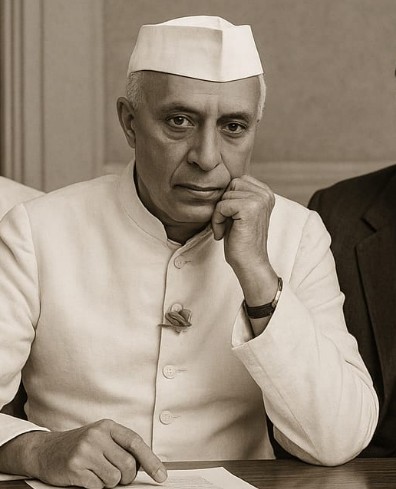| Title | Nehru’s ideas on Secularism |
|---|---|
| Author | Shubham Srivastava |
| Category | Studies about Jawaharlal Nehru |
| Number of Pages | 2 |
| Language | English |
| File Size | 63 KB |
| File Type | |
| Country of Publication | India |
| Main Topics | Influences on Nehru's Secularism, Historical Perspective on India, Opposition to Communalism and British Rule, Anti-Majoritarianism and Nationalism, Post-Independence Secularism, Link to Democracy and Universal Values, Relevance in Contemporary India |
Summary Note of this Document
 |
The text discusses Jawaharlal Nehru's concept of secularism, which was essentially his early life impact, including a secular family background, interactions with various persons, and a growing liking for Buddhism and India's religious-pole history. Nehru understood INDIA as an inherently multi-religious country with common cultural memories, and the co-operative Hindu-Muslim actions in the 1857 War of Independence were the best examples to him. He was vehemently against communalism and considered that the origin of it, which was partly due to British divide-and-rule tactics, so a neutral government that separates religion from politics should be established was his solution—however, it was different from Gandhi's. During the freedom struggle, Nehru went against majoritarianism by creating an inter-religious unity that was strong enough to support nationalism. He utilized rationalism, humanism, and scientific thinking to propagate secularism after independence, thus eliminating superstitions. It was similar to reformers like Raja Ram Mohan Roy. Secularism, according to Nehru, was the closest thing to democracy, equality, and liberty that he had seen in his Objectives Resolution. His concepts are said to be very much useful in dealing with India's social problems today in the end.
Click on the options below to read the full article.
×
